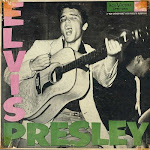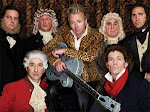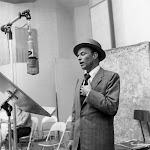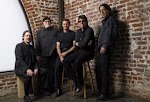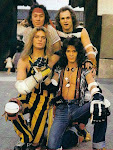


Numerous web sites, The Hollies' Official Web Site, Rolling Stone - The Hollies, Song Facts - He Ain't Heavy, He's My Brother, Rolling Stone - The Hollies - Discography & Sing365 - The Hollies were quite helpful in preparing my tribute to The Hollies. Please click on the hyperlinks to enjoy these web sites.
The Hollies were formed in Manchester, England, in 1962, by childhood friends Allan Clarke (b. 15 April 1942, Salford, Lancashire, England; vocals), and Graham Nash (b. 2 February 1942, Blackpool, Lancashire, England; vocals/guitar). They had already been singing together locally for a number of years as a semi-professional duo under a number of names such as The Guytones, The Two Teens and Ricky And Dane. They enlarged the group by adding Eric Haydock (b. 3 February 1943, Burnley, Lancashire, England; bass) and Don Rathbone (drums), to became the Fourtones and then The Deltas.
Following the recruitment of local guitar hero Tony Hicks from the Dolphins (b. 16 December 1943, Nelson, Lancashire, England) they became The Hollies. Almost immediately they were signed to the same label as The Beatles, the prestigious Parlophone. The Hollies' mid-'60s hits were British Invasion pop of the cute school, sweet-voiced, upbeat, and ultra crafted. Their first two singles were covers of The Coasters' '(Ain't That) Just Like Me' and 'Searchin''. Both made the UK charts and the group set about recording their first album. At the same time Don Rathbone left to become their road manager and was replaced by Bobby Elliott (b. 8 December 1942) from Shane Fenton (Alvin Stardust) And The Fentones. The group's excellent live performances throughout Britain had already seasoned them for what was to become one of the longest beat group success stories in popular music.
They crooned about teenagers in love on hit singles including "Stop Stop Stop" and "Dear Eloise," in addition to songs by non-Hollies such as Graham Gouldman (later a founding member of 10CC), who provided such valentines as "Here I Go Again," "Look Through Any Window," and "Bus Stop."
Their first two albums contained the bulk of their live act and both albums became long-time residents in the UK charts. Meanwhile, the band was enjoying a train of singles hits that continued from 1963-74, and their popularity almost rivaled that of The Beatles and Rolling Stones. Infectious, well-produced hits such as Doris Troy's 'Just One Look', 'Here I Go Again' and the sublime 'Yes I Will' all contained their trademark soaring harmonies. The voices of Clarke, Hicks and Nash combined to make one of the most distinctive sounds to be heard in popular music.
As their career progressed the aforementioned trio developed into a strong songwriting team, and wrote most of their own b-sides (under the pseudonym 'L. Ransford'). On their superb third collection, Hollies in 1965, their talents blossomed with 'Too Many People', an early song about over-population. Their first UK number 1 came in 1965 with 'I'm Alive' and was followed within weeks by Graham Gouldman's uplifting yet simple take 'Look Through Any Window'. By Christmas 1965 their recording of George Harrison’s 'If I Needed Someone' just scraped the UK Top 20.
Early in 1966, the group enjoyed their second number 1, 'I Can't Let Go', which topped the New Musical Express chart jointly with the Walker Brothers ''The Sun Ain't Gonna Shine Anymore'. 'I Can't Let Go', co-written by Chip Taylor, had already appeared on the previous year's Hollies and was one of their finest recordings, combining soaring harmonies with some exceptionally strong, driving guitar work.
The enigmatic and troublesome Eric Haydock was sacked in April 1966 and was replaced by Hick's former colleague in the Dolphins, Bernie Calvert (b. 16 September 1942, Brierfield, Lancashire, England). The Hollies success continued unabated with Graham Gouldman's 'Bus Stop', the exotic 'Stop Stop Stop!' and the poppier 'On A Carousel', all UK Top 5 hits, and (at last) became major hits in the US charts. The Hollies were quick to join the 'flower power' bandwagon, as a more progressive feel had already pervaded their recent album, For Certain Because, but with Evolution, their beads and kaftans were everywhere. That same year (1967) they released the excellent Butterfly.
It marked two distinct types of songs from the previously united team of Nash/Clarke/Hicks. On one hand there was an Allan Clarke influenced song, 'Charlie And Fred', and on the other an obvious Graham Nash composition like 'Butterfly'. Graham Nash took a more ambitious route. His style was perfectly highlighted with the exemplary 'King Midas In Reverse', (UK number 18) an imaginative song complete with brass and strings. The following year during the proposals to make Hollies Sing Dylan, Graham Nash departed for Crosby, Stills & Nash, in 1968, but The Hollies, with ex-Swinging Blue Jean Terry Sylvester, of the Escorts, added on second lead vocal, persevered.
The '70s found them scoring big with "Long Cool Woman In A Black Dress," "He Ain't Heavy, He's My Brother," and "The Air That I Breathe."
Allan Clarke was devastated by the departure of his friend of more than 20 years and after seven further hits, Allan Clarke decided to leave for a solo career. The band soldiered on with the strange induction of Mickael Rickfors from Sweden. In the USA the million-selling 'Long Cool Woman In A Black Dress' narrowly missed the top spot, ironic also because Allan Clarke was the vocalist on this older number taken from the successful album Distant Light.
Allan Clarke returned after an abortive solo career which included two albums, My Real Name Is 'Arold and Headroom. The return was celebrated with the worldwide hit, 'The Air That I Breathe', composed by Albert Hammond. Over the next five years The Hollies pursued the supper-club and cabaret circuit as their chart appearances began to dwindle. In 1981, Terry Sylvester and Bernie Calvert left the group. Sensing major problems ahead, EMI suggested they put together a Stars On 45-type segued single. The ensuing 'Holliedaze' was a hit, and Graham Nash was flown over for the television promotion. This reunion prompted the album What Goes Around, which included a minor hit with the Supremes' 'Stop In The Name Of Love'.
Following this, The Hollies went back to the oldies path, until in 1988 a television beer commercial used 'He Ain't Heavy, He's My Brother', and once again they were at the top of the charts for the first time in over a dozen years. In 1993 they were given an Ivor Novello award in honor of their contribution to British music. The mid-90s lineup in addition to Clarke, Elliott and the amazingly youthful Hicks featured Alan Coates (guitar), Ray Stiles (bass) and Ian Parker (keyboards). The Hollies' catalogue of hits, like those of The Beach Boys, The Beatles and The Kinks will continue to be reissued for future generations. Their longevity is assured as their expertly crafted, harmonic songs represent some of the greatest music of all mid-60s pop.
Of the abundant compilations, Epic Anthology and Classic Masters are the strongest. Archive Alive ! features a fine 1983 concert: It's amazing that they could pull off those complex harmonies live. What Goes Around is a nice reunion album of almost all the original members on the 20th anniversary of The Hollies' founding.
The Hollies are currently on tour, world wide, click here for The Hollies' Tour Information.
The Hollies - Discography…
Main Releases
"Epic Anthology": From The Original Master Tapes! - 2008
Romany (Expanded Edition) - 2008
Buddy Holly (Expanded Edition) - 2008
Hollies/Would You Believe? - 2007
Reunion - 2004
Long Road Home-the 40th Anniversary Collection - 2003
Greatest Hits (2CD) - 2003
Best of the Hollies [Collectables] - 2003
Classic Masters - 2002
What Goes Around... [Bonus Track] - 2002
Greatest Hits (Epic) - 2002
Super Hits - 2001
Take Two - 2001
Best of the 70's - 2000
Best of the 60's - 2000
The Mikael Rickfors Years - 2000
Archive Alive! - 1997
The Midas Touch - 1995
30th Anniversary Collection 1963-1993 - 1993
All Time Greatest Hits - 1990
Epic Anthology - 1990
The EP Collection - 1987
The Best of the Hollies, Vol. 2 - 1983
Live Hits - 1977
Greatest Hits - 1973
Distant Light - 1972
Moving Finger - 1970
Confessions of the Mind - 1970
Dear Eloise/King Midas In Reverse - 1967
Evolution - 1967
Butterfly - 1967
In the Hollies Style - 1964
Stay with the Hollies - 1964
The Hollies have a lot of terrific songs, such as Bus Stop, He Ain't Heavy, He's My Brother, Just One Look, Long Cool Woman In A Black Dress, and The Air That I Breathe, among others…
Thank you, to The Hollies, for some beautiful music…
I can’t think of a better way to close out this tribute, than to further explain their best song, He Ain't Heavy, He's My Brother. I’ve always loved the song, but, this song now has a deeper meaning. A dear friend of mine was in mourning, over the loss of his brother, who passed away, way too young. My friend, at his brother’s funeral service, explained how much his brother meant to him, then, as a beautiful, moving tribute, played this song, to show respect. Now, every time I hear this song, I think of his brother, and how proud I am of my friend, for such a touching tribute.
This song, He Ain't Heavy, He's My Brother, was the only songwriting collaboration between veteran songwriters Bobby Scott ("A Taste of Honey") and Bobby Russell ("Little Green Apples"). Bobby Russell, who wrote the lyrics, was married to Vicki Lawrence, and wrote her #1 hit "The Night The Lights Went Out In Georgia." He died of a heart attack in 1992. Bobby Scott was a piano player, singer, and producer. He did a lot of work with Mercury Records on sessions for artists like Aretha Franklin, Marvin Gaye and Bobby Darin. In 1990, he died of cancer.
The title came from the motto for Boys Town, a community formed in 1917 by a Catholic priest named Father Edward Flanagan. Located in Omaha, Nebraska, it was a place where troubled or homeless boys could come for help. In 1941, Father Flanagan was looking at a magazine called The Messenger when he came across a drawing of a boy carrying a younger boy on his back, with the caption, "He ain't heavy Mr., he's my brother." Father Flanagan thought the image and phrase captured the spirit of Boys Town, so he got permission and commissioned a statue of the drawing with the inscription, "He ain't heavy Father, he's my brother." The statue and phrase became the logo for Boys Town. In 1979, girls were allowed and the name was eventually changed to Girls And Boys Town. The logo was updated with a drawing of a girl carrying a younger girl added.
“He Ain't Heavy He's My Brother” (words by Bobby Scott and Bobby Russell)
The road is long
With many a winding turn
That leads us to who knows where
Who knows when
But I'm strong
Strong enough to carry him
He ain't heavy, he's my brother
So on we go
His welfare is of my concern
No burden is he to bear
We'll get there
For I know
He would not encumber me
He ain't heavy, he's my brother
If I'm laden at all
I'm laden with sadness
That everyone's heart
Isn't filled with the gladness
Of love for one another
It's a long, long road
From which there is no return
While we're on the way to there
Why not share
And the load
Doesn't weigh me down at all
He ain't heavy, he's my brother
He's my brother
He ain't heavy, he's my brother...
R.I.P. Mark…






















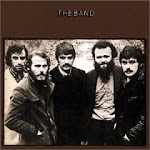



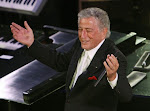














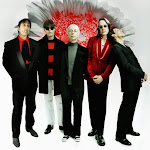
























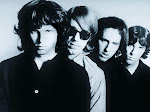
























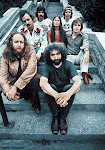




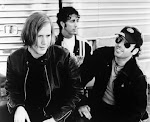

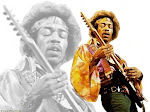









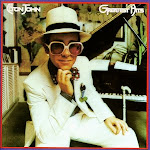




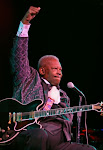


















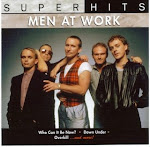%2B-%2BRock.jpg)

















